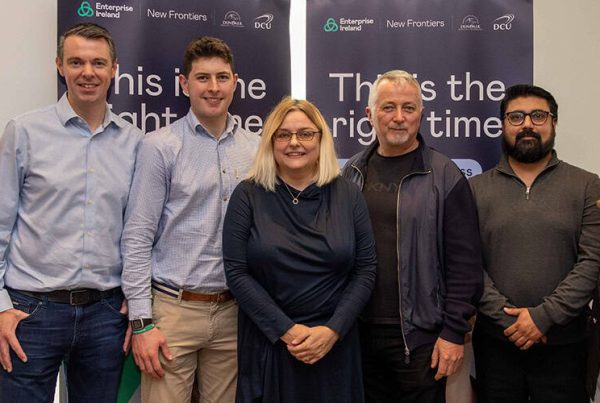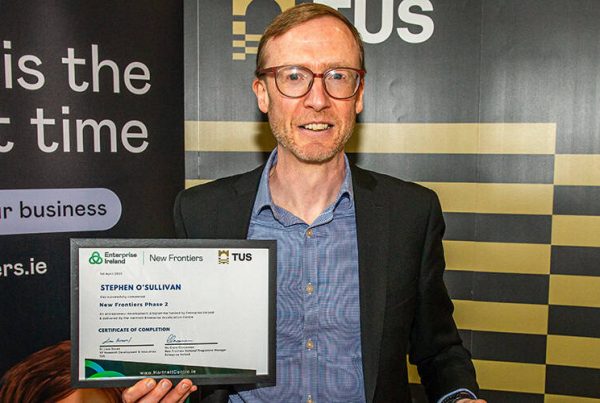
Making the first external hire is a big step for a startup. It’s a significant commitment with all kinds of obligations and logistics to consider. In this blog, we’ll take a look at some tactics to help you make recruitment less of a risk.
Before you start, make sure you do really need to hire someone at this point. If you’re running a startup, it’s a good guess that you’re run off your feet and wish you had a second you to make the workday less crazy. However, it’s important to recognise whether this is just the typical whirlwind of getting a new business off the ground or whether the time has come to grow the team.
The first step is to take a careful look at the finances and financial projections to see if you can afford an employee. Consider all the costs associated with this – salary costs plus hidden costs such as equipment, office space, insurance, software, training, etc.
The second step is to consider which area of the business could best be supported by a second pair of hands. There should be enough workload to add up to a new role, and what needs to be done should bring real value to the business and contribute to your bottom line (for example, supply chain or customer services). If your plate is overflowing with smaller tasks that don’t add up to a particular business role (for example, bookkeeping) then rather than making a new hire you should lighten the load by outsourcing specific jobs.
Finally, be careful of making your first hire a big, expensive role. For instance, it’s not uncommon for founders to want their first employee to be the salesperson, because it’s typically a role they aren’t confident in. However, these salaries are usually very high and it can be hard to find the right salesperson on the first attempt (see more about this in our interview with Nicky Bowman).
So, having decided the time is right for your first hire, here are 5 ways to make the transition from founder to employer a little easier.
How to successfully hire your first employee
1. Identify your startup’s weak spots
Your first hire should not be a jack-of-all-trades. In fact, no hire should be! It’s particularly tempting for startups to seek out that unicorn individual who has a bit of experience in everything. The problem with this approach is that they’re not properly solving any one problem. A much better approach is to identify specific weaknesses in your business that are taking up a lot of time or particular gaps where you can really start to grow revenue and aim to hire someone who can take this on and have a transformative effect.
2. Document procedures for tasks
You want your new employee to hit the ground running when they arrive. Do not wait until the last minute to figure out how they are going to do what you need them to do. It’s probably clear in your mind how the tasks that need doing should get done, but don’t assume this will be obvious to your new hire. They aren’t familiar with your business or how you work yet. If you’re not used to onboarding employees, you’ll be surprised how many small things need to be communicated in the initial stages.
List the responsibilities attached to this new role and then take the time to document procedures for each one. Trust us, it’s worth it. As an entrepreneur, you’re used to doing everything yourself, which means you have your own set of standards. If you want to maintain those standards and avoid resorting to micromanagement, then procedures are a lifesaver.
3. Don’t underestimate the importance of culture fit
Skills are not the be-all and end-all, especially at this early stage of your business. Your first hire is going to be working in close quarters with you and, inevitably, will have an influence over how your team grows. This is not the time to take a punt on the aloof genius, the rebellious leader or the troubled artist! Rather trust, integrity, and good communication skills are the kind of characteristics you want to invest in with your first hire.
If there is more than one business founder, we’d advise giving everyone the opportunity to meet with the potential candidate so they have a chance to air their opinions. The last thing you want is your office split down the middle by an employee who gets along swimmingly with one founder and is at loggerheads with the other! This exposure to key people in your business is also a great way to show the candidate that you envision them to be there for the long haul.
“I’ve turned down very good technical people. I know the team they are going to have to work in and if I don’t think they will fit in there is no point in hiring them, no matter how talented they are from a technical point of view.”
Sandra Whelan, Immersive VR Education
read our interview with Sandra
4. Have them demonstrate their skills
It really is the only way to know for sure that they can do the job. There are many great interviewees out there. These people are personable, passionate, quick with winning answers and they’ve researched your company inside and out. But none of these attractive qualities necessarily means they will be good at the tasks you have in mind for them.
To combat this, don’t be afraid of having more than one stage in your recruitment process. It may be time-consuming, but this is not a hire you want to make in a rush. The first stage of the interview could be designed to whittle down candidates by their skillset and the second stage could be for finding out if they have the right personality fit for your company.
5. Have a trial period
This is your first hire and there’s a lot riding on it. Feeling a little stressed about getting it right is only natural. Overthinking it won’t make it any easier, however having a trial period can take a lot of the pressure off. Recruitment is a speciality industry for a reason so if you’re not a professional recruiter, it makes sense to buffer the risk with a probationary period. Ensure it is included in the new employee’s employment contract and define clearly the duration of the trial period. Under Irish law, a probationary period must be one year or less in duration.
Making your first hire is a big decision, especially when you are bootstrapping. As with most things in business, careful planning will help you avoid the most common pitfalls. Be clear about what you expect and what you are offering from the outset, because high staff turnovers will only negate the benefit of having the extra help. Also, remember that although you will be able to move over a large part of your workload to a capable colleague, employees do require management, so factor in enough time to oversee their work.
About the author
 Scarlet Bierman
Scarlet Bierman
Scarlet Bierman is a content consultant, commissioned by Enterprise Ireland to fulfil the role of Editor of the New Frontiers website. She is an expert in designing and executing ethical marketing strategies and passionate about helping businesses to develop a quality online presence.
Recent articles

Fourteen Startup Founders Graduate From Phase 2 Of New Frontiers In Tallaght

Eleven Founders Graduate From New Frontiers In The Border Mid-East Region

Laying The Right Groundwork Helps Startups Prepare For Export Success

Startup In Dublin: Learn More About New Frontiers On TU Dublin’s Grangegorman Campus

Michael Furey On The Success Of Ronspot: “The Most Important Thing Is Research”

Showcase Day Celebrates Twelve Ambitious Founders In County Dublin (IADT & NovaUCD)

Scientist Turned Founder Margaret Rae Is Building A Prevention System For The Aquaculture Sector

 Scarlet Bierman
Scarlet Bierman
